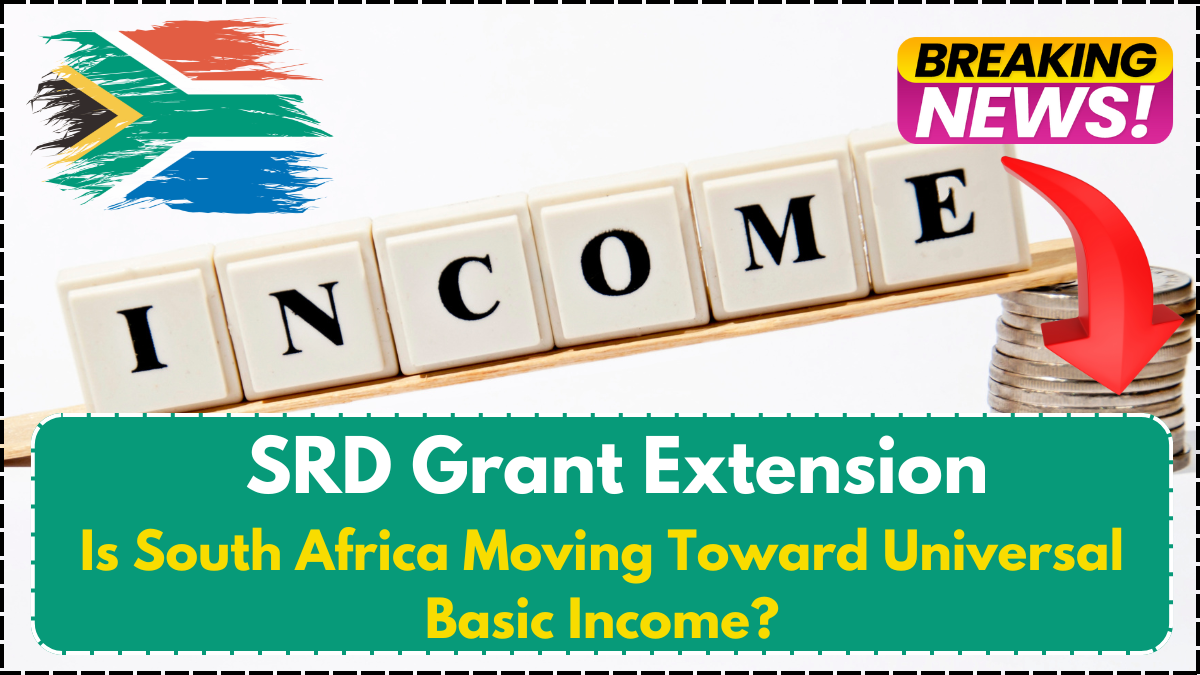The Social Relief of Distress (SRD) grant was introduced in 2020 as an emergency financial aid measure to assist unemployed South Africans facing severe economic challenges during the COVID-19 pandemic. Originally intended as a short-term intervention, the grant quickly became an essential support system for millions struggling with financial insecurity. Due to persistent socio-economic difficulties, the SRD grant has been extended multiple times. As per the latest government announcement, it will now continue until March 2026, ensuring continued assistance for those in need.

Latest Update: SRD Grant Extended and Budget Allocation
During the 2025 Budget Speech, Finance Minister Enoch Godongwana confirmed that the SRD grant would be extended once again, this time until the end of March 2026. To fund this extension, the government has allocated R35.2 billion. This move reflects the state’s ongoing commitment to supporting economically disadvantaged citizens while navigating broader economic recovery efforts.
The decision to prolong the SRD grant comes as no surprise, given the country’s ongoing financial struggles, high unemployment rates, and the continued need for social welfare programs. The extension provides relief to millions, ensuring that South Africa’s most vulnerable populations continue receiving assistance while long-term economic policies are developed.
The Shift Toward a Basic Income Grant (BIG)
While the SRD grant remains in place, the government is actively considering a more permanent solution—a Basic Income Grant (BIG). This new initiative aims to establish a continuous financial safety net for unemployed individuals, replacing the temporary SRD system with a long-term income support strategy.
To determine the feasibility and implementation of the BIG, extensive research and policy evaluations are underway. Authorities are examining various models and funding mechanisms to ensure that a sustainable, long-term income support system can be introduced without destabilizing the national budget.
Financial and Policy Considerations
The decision to extend the SRD grant and explore the BIG carries significant financial and policy implications. Government officials are grappling with how to sustain these programs without overburdening the national economy. Several funding options are being explored, including:
- Tax Reforms: Adjustments to existing tax policies to generate additional revenue.
- Resource Reallocation: Redirecting funds from other sectors to prioritize social welfare.
- Public-Private Partnerships: Encouraging corporate contributions and investment in social programs.
Striking a balance between fiscal responsibility and social support remains a top priority. Policymakers aim to create a system that ensures long-term economic stability while providing financial relief to those who need it most.
Public Reaction and Socio-Economic Impact
Currently, the SRD grant serves as a critical safety net for approximately 8.5 million South Africans who do not have formal employment. The announcement of its extension has been met with widespread approval, with many beneficiaries expressing relief that the support will continue.
However, while cash assistance remains crucial, there is growing public discourse on the need for complementary employment initiatives. Many citizens advocate for programs that go beyond financial aid and incorporate skill development, job creation, and entrepreneurial support to help recipients achieve long-term self-sufficiency.
Key Aspects of the SRD Grant Extension
| Aspect | Details |
|---|---|
| Extended Until | March 2026 |
| Budget Allocation | R35.2 billion |
| Current Beneficiaries | Approximately 8.5 million unemployed South Africans |
| Future Plans | Potential transition to a Basic Income Grant |
Conclusion
The extension of the SRD grant until 2026 underscores the government’s commitment to social welfare in a challenging economic landscape. While the grant continues to provide critical relief, the long-term goal is to establish a more sustainable income support system, possibly through the Basic Income Grant. Policymakers face the complex task of balancing financial constraints with the ongoing need for economic assistance. As discussions evolve, South Africans eagerly anticipate concrete plans that will ensure lasting financial security and economic resilience for the most vulnerable members of society.
Frequently Asked Questions
Who qualifies for the SRD grant?
The SRD grant is available to South African citizens, permanent residents, and special permit holders who are unemployed, between the ages of 18 and 59, and not receiving any other form of government financial assistance such as UIF or social grants.
How can I apply for the SRD grant?
Applications can be submitted online through the official SASSA website or via WhatsApp and other designated platforms provided by the government. Applicants must provide a valid ID number and other required details.
Will the SRD grant be replaced by the Basic Income Grant?
While the government is exploring the introduction of a Basic Income Grant, the SRD grant remains active until March 2026. Further updates on a permanent income support system will be provided as research and policy discussions progress.
What should I do if my SRD grant application is declined?
If your application is rejected, you can appeal the decision through the SASSA appeals process. Ensure that your details are correct and that you meet all eligibility criteria before submitting an appeal.
When will the next SRD grant payments be made?
Payments are typically made on a monthly basis, with specific dates announced by SASSA. Beneficiaries should check official government platforms for updates on payment schedules.
For More Information Click Here
Akesh is a furniture expert with years of experience in design and craftsmanship. Specializing in sustainable materials, he shares his expertise to help people create stylish and functional living spaces.
